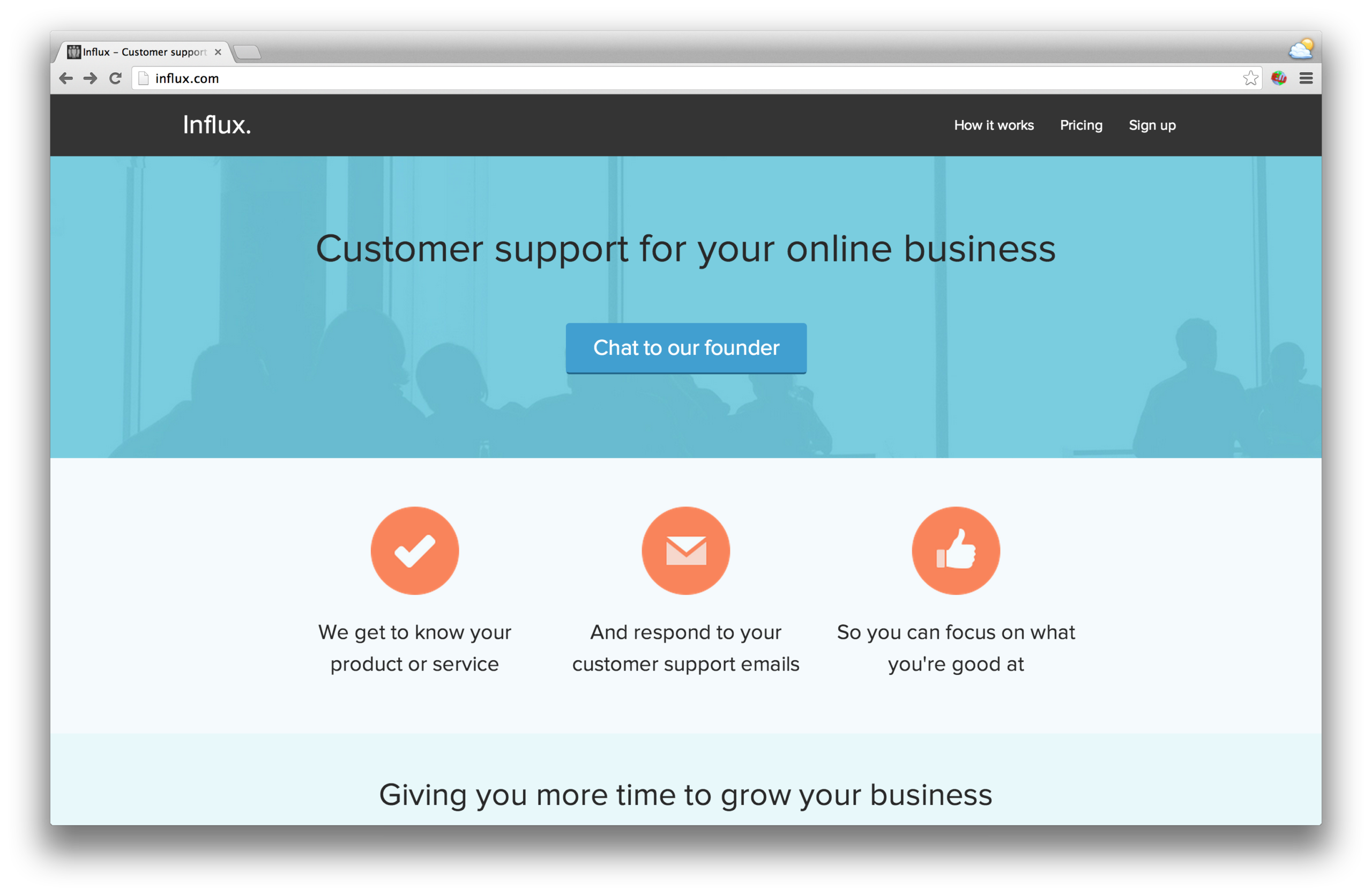 A Q&A with Influx founder and CEO Mikey De Wildt. The startup, which is based just outside of Melbourne, Australia, and offers a customer support solution for web-based startups and small businesses, announced the closing of a $250,000 Seed funding round at the beginning of March. Investors are Leni Mayo and Mark Harbottle—a founder of SitePoint and 99designs. It was founded last year.
A Q&A with Influx founder and CEO Mikey De Wildt. The startup, which is based just outside of Melbourne, Australia, and offers a customer support solution for web-based startups and small businesses, announced the closing of a $250,000 Seed funding round at the beginning of March. Investors are Leni Mayo and Mark Harbottle—a founder of SitePoint and 99designs. It was founded last year.
SUB: Please describe Influx and your primary innovation.
De Wildt: When you create a new business in the tech space, you’re born global. All of a sudden you have customers around the world buying your product, using your service, but there’s no affordable global customer support team. Influx.com manages the customer support function for you, so business owners can focus on their product and scaling their businesses.
SUB: Who are your target markets and users?
De Wildt: Our target market is startups, small businesses and developers with side projects that spend about an hour or more of their own time on customer support. We can take care of customer service, so they can focus on their business. Soon we will also be able to augment an established team by fulfilling the support requirements outside of their own time zone.
SUB: Who do you consider to be your competition, and what differentiates Influx from the competition?
De Wildt: Influx.com is unique and is filling a gap in the marketplace—in that light we don’t have any true competitors. Traditional customer support service providers target enterprise companies and are not really startup friendly, as they simply don’t meet their minimum volume levels to service. Other outsourcing solutions like oDesk are good for startups, but the overhead of recruiting, managing, and scaling talented customer support specialists can take away from what their primary focus should be—growing their business.
SUB: You just announced that you’ve raised $250,000 in Seed funding. Why was this a particularly good time to raise outside funding?
De Wildt: Unlike your standard online service, I need to hire awesome customer service talent, and to do that I needed capital to ensure I have enough staff to fulfill the new customers I am onboarding.
SUB: How do you plan to use the funds?
De Wildt: I plan to build a team of support specialists in the U.S. time zone so we can target Silicon Valley-based startups and small businesses.
 SUB: What was the inspiration behind the idea for Influx? Was there an ‘aha’ moment, or was the idea more gradual in developing?
SUB: What was the inspiration behind the idea for Influx? Was there an ‘aha’ moment, or was the idea more gradual in developing?
De Wildt: There wasn’t really an ‘aha’ moment, more of a gradual increase in frustration with the aforementioned alternatives when trying to find help with customer support for my side project, WordPress Backup to Dropbox.
SUB: What were the first steps you took in establishing the company?
De Wildt: First, I had to make one of the toughest decisions of my life and leave my awesome engineering role at 99designs and step into the unknown. From here I pulled up at a desk at SitePoint and started reaching out to online businesses offering to do their support for them. I was a one man team for a few months doing the customer support for all my initial customers.
SUB: How did you come up with the name? What is the story or meaning behind it?
De Wildt: The definition of ‘influx’ is “an arrival or entry of large numbers of people or things,” so it describes what we do. We can handle an influx of customer support. Getting a domain was a tough gig, and we eventually just chose from a list of domains that we could acquire affordably.
SUB: Do you have plans to seek additional outside funding in the near future?
De Wildt: I don’t know at this stage; that would depend on where we are in a year or so and what goals I have for the company.
SUB: What have the most significant challenges been so far to building the company?
De Wildt: Building trust has been tough; being the new kid on the block means that some potential customers want to wait to see if others will use you first before they will. It’s a chicken-and-egg thing.
SUB: How do you generate revenue or plan to generate revenue?
De Wildt: We already are, with fixed monthly pricing designed to scale with the email volume assigned to us.
SUB: What are your goals for Influx over the next year or so?
De Wildt: I’d like to have 80-to-100 customers by the end of the year.












